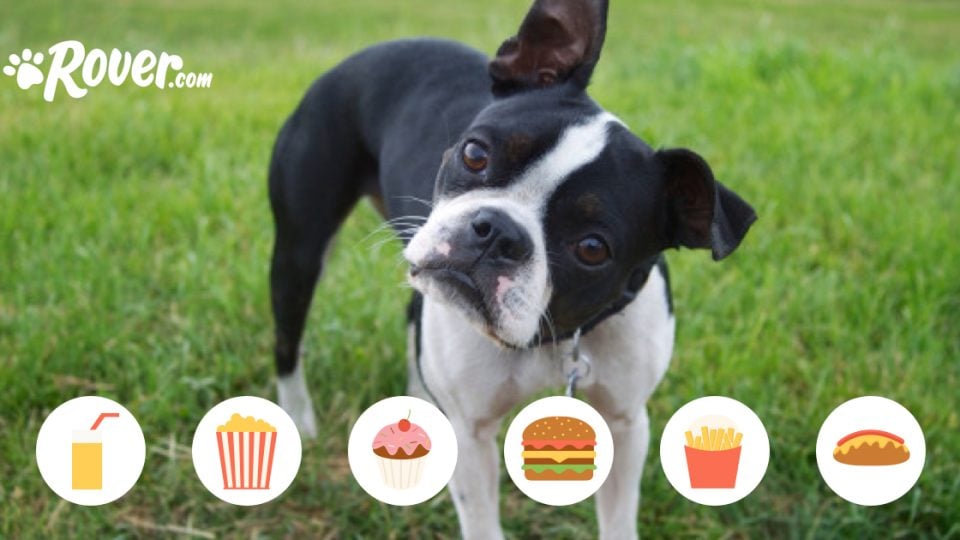Marshmallows are an essential treat at campfires, in cereal treats, and floating in hot cocoa. These bouncy, chewy delights are made mostly of sugar and gelatin whipped with air until they weigh almost nothing and melt in your mouth.
When your dog comes sniffing around the campfire next time you’re making S’mores, is it OK to share a yummy sugary marshmallow with him?
Can Dogs Eat Marshmallows?
Technically, yes. But we advise you against it. An occasional marshmallow won’t hurt your dog. But marshmallows are basically mini sugar pillows, and sugar is not a beneficial part of the canine diet.
In their defense, marshmallows can come in handy as a treat when you’re trying to get your dog to swallow an undesirable medication. If you know your dog likes marshmallows, it’s OK to slip a necessary medication into one of these little sugar pillows.
This is particularly a nice trick if you need to give your dog medication frequently and they are picky eaters. Dog knows, my beagle Marzipan rejects peanut butter and cream cheese when she knows there’s a pill in the middle, and the occasional marshmallow has saved my sanity a time or two.
Otherwise, only share a marshmallow once in a blue moon.
Do Marshmallows Have Any Nutritional Value?
Marshmallows taste great, but that doesn’t mean they’re nutritious. To determine if marshmallows are a good choice for your pup, let’s take a look at the nutritional breakdown. Marshmallows are made of sugars, corn starch, gelatin, flavorings, and some additional ingredients (depending on the brand).

via kraftheinz-foodservice.com
In a 100 calorie serving of marshmallows, 97 calories come from sugar and starch (nutrients your dog does not need), and 3 calories come from protein (an essential nutrient for dogs). There’s no question that having 97% empty calories qualifies marshmallows as junk food, but we already knew that.
Marshmallows are about 60% sugar and 2% protein by weight. This nutrition profile puts marshmallows in the treat zone. Dogs should have a maximum of 10% of their daily calories from treats. So, a few marshmallows once in awhile are OK, but keep in mind that they are not going to do your dog any good.
Healthier Sweet Snacks for Dogs
If you’d like to give your dog a sweet snack from time to time, there are more nutritious options than marshmallows. Consider some of these tasty options when you want to share a sweet treat:
- Cantaloupe chunks contain important nutrients including vitamins A and C, beta-carotene, folic acid, antioxidants, and dietary fiber.
- Watermelon is a hydrating and low-calorie treat packed with potassium, beta-carotene, magnesium and vitamins A and B6.
- Frozen sections of oranges are refreshing and contain an extra boost of potassium and fiber.
- Strawberries are a juicy treat that are low in fat and sugar, and high in vitamins and fiber.
- Mangoes are super popular with some dogs and they are a great source of vitamins A, B6, C, and E. They also contain dietary fiber, beta-carotene, antioxidants, and potassium.
- Apples are a great treat for dogs. Share a fresh slice of apple, a crunchy dried apple ring, or stir a spoon of applesauce into your dog’s kibble. Apples are rich in potassium, fiber, and vitamin A.
Tasty Treat Recipes for Dogs
Stir up some doggy popsicles with fruit and yogurt, or layer up a yummy molded ice lick for your pup, and throw in lots of fruits and veggies. Pour some berry puree into an ice cream maker to mix up some dog-friendly sorbet as a special treat. You can even toss a marshmallow on top!
For More Information
From carrots to watermelon, there is a wide selection of information on vegetables available on our Can My Dog Eat? directory page.
Learn more about feeding your dog a wonderfully varied diet while learning the limitations of a dog’s sensitive digestive system. We offer a collection of articles on foods that are safe, dangerous or even toxic for dogs to eat, including vegetables, dairy, bread, and junk food.
Learn more about treats that are safe for dogs in articles like Can My Dog Eat Popcorn? and Can My Dog Eat Donuts?
The information provided in this article is not a substitute for professional veterinary help.







